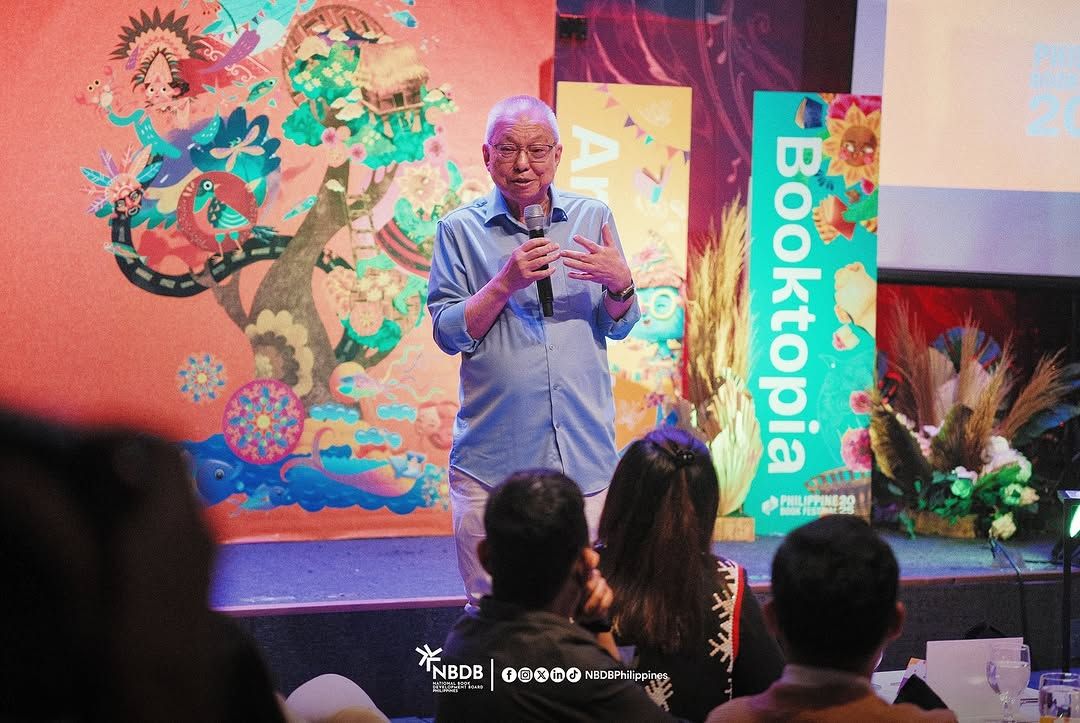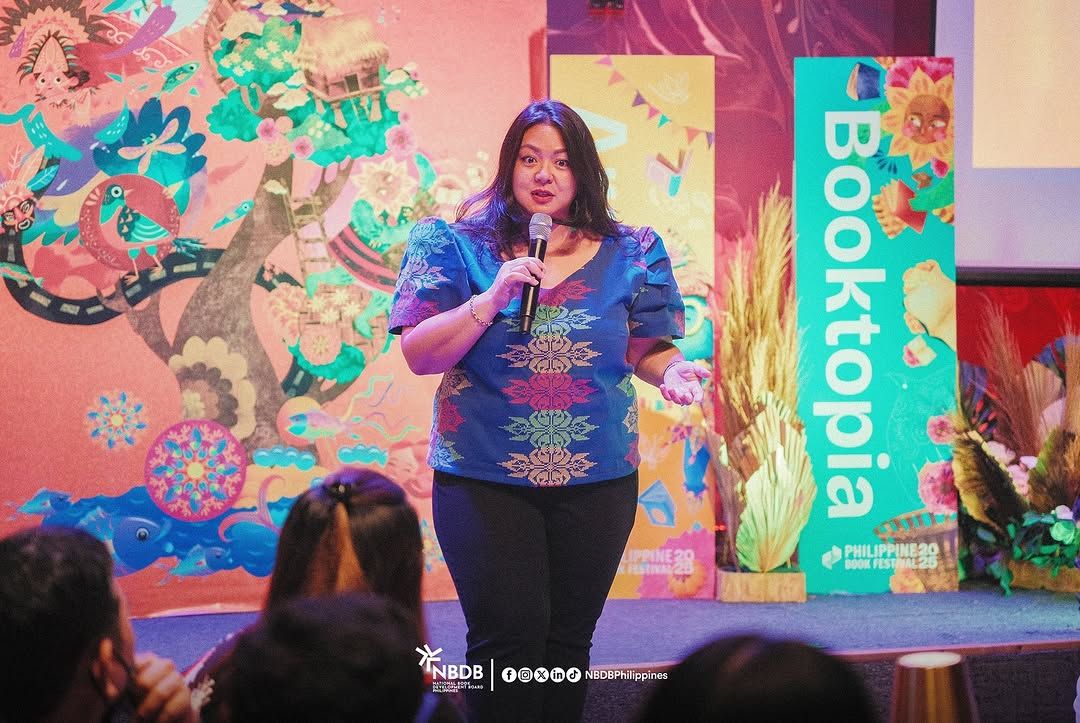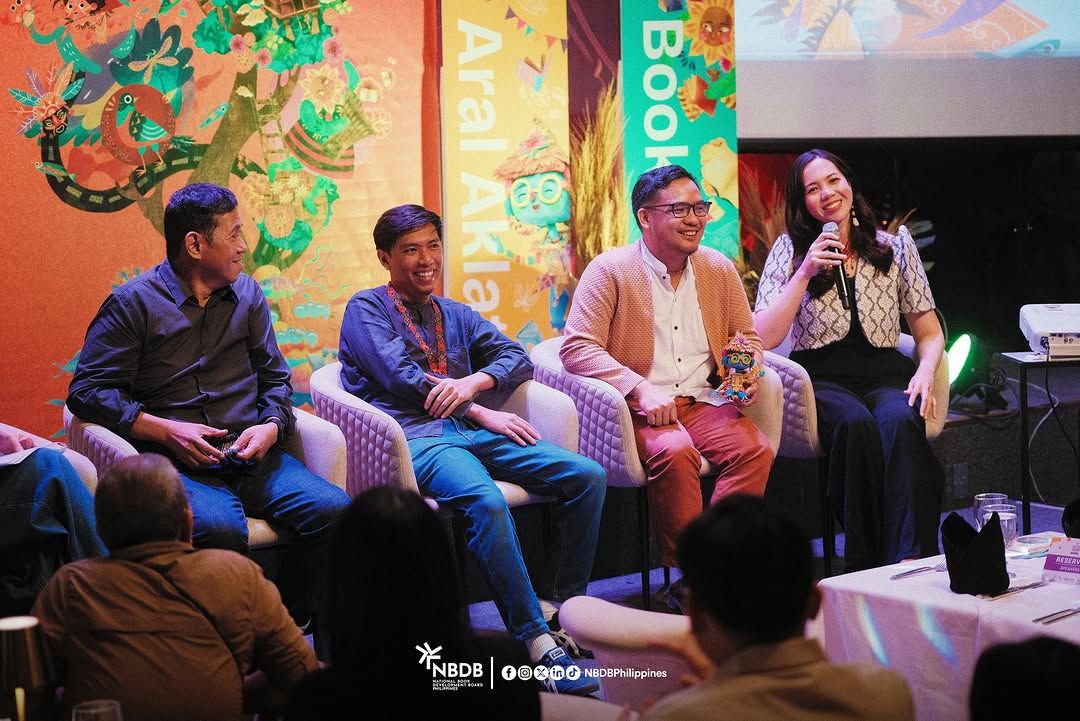Style Weekend: Where Pinoy-authored books are front and center
This year's Philippine Book Festival is more than just a marketplace—it's a 'third place' where people can lose themselves in the pages of their favorite Filipino books
By MB Lifestyle
It’s an understatement to say that the Philippines is teeming with great authors. These literary creatives from across the country have diverse stories to tell, lessons to share, and worlds of pure imagination where readers can get lost as they turn from one page to the next. Unfortunately, their biggest challenge isn’t putting words on paper—it’s getting their works noticed by fellow Filipinos.
National Artist for Film and Broadcast Arts Ricky Lee knows this struggle all too well. As an author himself, he has seen how Filipino-authored books are often overlooked in favor of foreign ones in the local literary scene. According to him, locally produced books—including some of his own—are frequently tucked away in the most inconspicuous corners of bookstores.

That’s exactly what the National Book Development Board (NBDB), the country’s book authority, aims to change. Through the Philippine Book Festival (PBF), it is making Filipino-authored books more accessible and easier to find.
"I would like to thank the NBDB because, through the PBF, Pinoy-authored books are no longer bit players or ‘extras’—they’re the main protagonists, the ‘bida,’ even if only for four days a year, when all eyes are on local authors like myself," Lee said during the PBF press launch. "With the NBDB, they do everything to show the world the undeniable fact that Filipino authors are outstanding and exceptional."
Championing Filipino authors and books
Since its launch in 2023, the PBF has been on a mission to become a marketplace for Filipino-authored books—but its purpose goes beyond just selling. Not only does it provide a platform for Filipino authors to connect with their audience, but it also helps integrate their works into students’ lives.
"We created a marketplace for Philippine books because they’re not easily accessible to Filipinos," said NBDB Executive Director Charisse Aquino-Tugade. "We sat down with the Department of Education (DepEd) to address this issue, and now we have the PBF—not just as a marketplace for Philippine books but also as a venue for DepEd to purchase quality educational materials for schools nationwide."

"We worked with the Bureau of Learning Resources (BLR), led by Atty. Aris Cawilan, to shift policies and encourage DepEd to prioritize procuring Filipino-authored books," Aquino-Tugade added.
During the first PBF, DepEd conducted what’s called “scoping,” where officials visited different marketplaces to compare book pricing, quality, and other key aspects.
Following this effort, Aquino-Tugade proudly noted that since the festival’s first run, DepEd has purchased ₱925 million worth of Filipino-authored books, making them available in schools across all regions of the country.
And for this year’s PBF, with the marketplace now well-established, DepEd—under the leadership of Secretary Juan Edgardo “Sonny” Angara—has allocated an additional ₱2.4 billion to purchase even more Filipino-authored books for students.
"We’re very excited to work with DepEd, and they’re going to focus on the titles in this marketplace that we’ve created," Aquino-Tugade said.
Creating a community through reading
The Philippine Book Festival returns this year with a grand showcase of Filipino literary works from March 13 to 16 at the Megatrade Hall, located on the fifth floor of SM Megamall in Mandaluyong City.

For this year’s event, Aquino-Tugade emphasized that the festival will not only serve as a marketplace but also as a “third place.” A third place refers to a space outside of home and work where people can freely gather, engage in conversations, and be part of a community.
"A book is a product—a knowledge product—but a unique one. For the younger generation to embrace it, it has to be cool enough," she explained. "That’s why this year’s PBF isn’t just a marketplace. It’s also a ‘third place’—a space where people can read and enjoy books beyond an academic setting."
At the PBF, children can participate in storytelling sessions, aspiring artists can join drawing workshops to explore becoming a komikero, and readers can dive into discussions on
queer literature—
a fast-growing genre gaining international recognition. The event welcomes entire families and groups of friends to explore the world of Filipino books together.Aquino-Tugade also highlighted the festival’s role in fostering connections—not just between readers and authors but also among the authors themselves. The variety of programs and interactive opportunities make the PBF an exciting and dynamic experience.
"Bring a tote bag and some money because there’s a lot to buy at great discounts," she advised. "Bring a pen because you might run into your favorite authors and get your books signed. And wear good shoes—you’ll have plenty of ground to cover!"
Hello, readers! Do you have a story you want us to feature? You can—reach us via [email protected] or on Facebook, Instagram, and Tiktok.